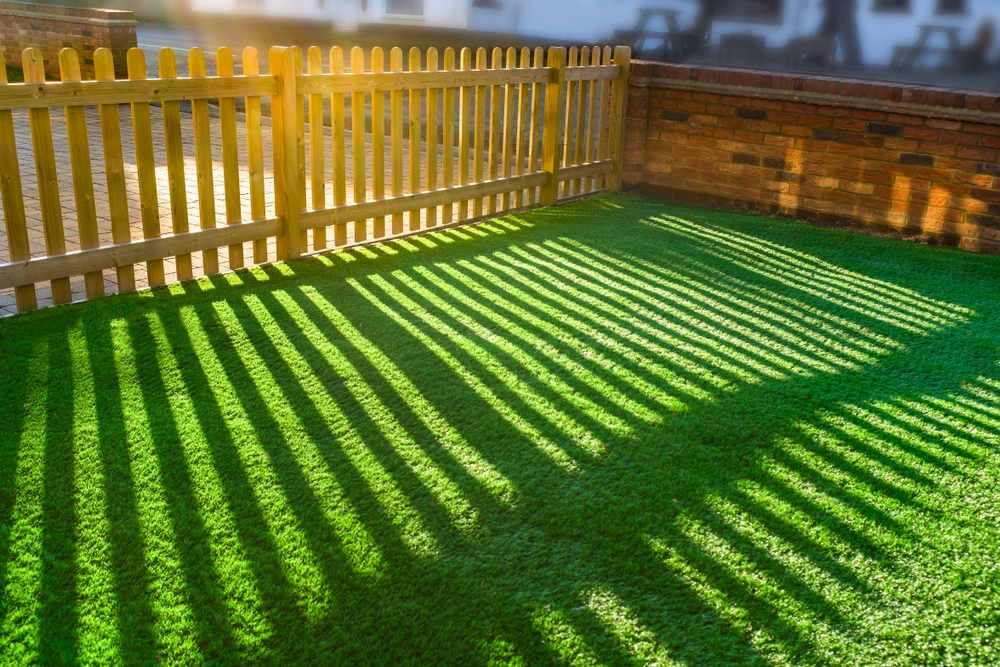
Protect Your Artificial Turf From The Heat
Sep 3, 2021
Having artificial turf be put in place of normal grass is a great way to transform any space. Gator Turf has years of experience with artificial turf and wanted to share some important information about artificial turf and the heat. Before installing artificial turf, consider the following tips for keeping your turf in excellent condition for years to come.
While artificial turf is durable, it can still be severely damaged by reflected sunlight. Let’s look at some places you may not want to lay artificial turf.
- Does the area have a window or door with a low glass window?
- Is there a vinyl or aluminum fence in the surrounding area?
If the answer is yes to either of these, we’ll explain why they can damage or even melt your artificial turf.
How Does a Reflection Hurt?
A sun reflection occurs when the sun’s solar energy is bounced off of a reflective surface, such as a window, mirror, metals, and so on. These surfaces concentrate the sun’s rays resulting in much stronger heat. It would be the same as putting a leaf under a magnifying glass and watching it ignite from the heat.
You can probably imagine what this would look like if this was directed onto your turf.
Window Reflections
Sun reflections that reflect off of a window can reach temperatures of up to 175 – 200 degrees Fahrenheit. This happens because windows are meant to allow light but keep out the ultraviolet and infrared rays. These are reflected off causing more heat.
Fence Reflections
Similar to windows, certain types of fences will also reflect sun rays, creating a very hot beam of light. These beams of light can also reach up to 200 degrees Fahrenheit. At this temperature, thighs like plastic, toys, and even car bumpers will begin to melt and morph. Other reflective materials like aluminum trash cans and external mirrors will result in the same thing.
How To Stop Artificial Turf From Melting
If any of the following information relates to you, it doesn’t mean you won’t be able to have artificial turf in these areas. We’ll provide some tips to prevent this:
Tip 1: Garden
If you think you’ll experience melting due to vinyl fences in the area, allow a few garden feet from the vinyl fence. This will allow the reflection to hit the ground, stone, or mulch rather than the turf itself.
Tip 2: Nylon Grass
If you have windows that will be reflecting sunlight, it’s best to look for nylon grass rather than polyethylene grass. Nylon grass has a much higher melting point and will not melt from these high temperatures.
Tip 3: Reflective Film
If price is a factor, then nylon grass may not work but there is still a solution. Applying an anti-reflective film to your windows will reduce the amount of light that is bounced back onto the turf.
Looking For Artificial Turf?
If you want to transform your outdoor or indoor environment will artificial turf, contact the turf pro at Gator Turf today! Visit our contact page or call us at 954-510-8873




